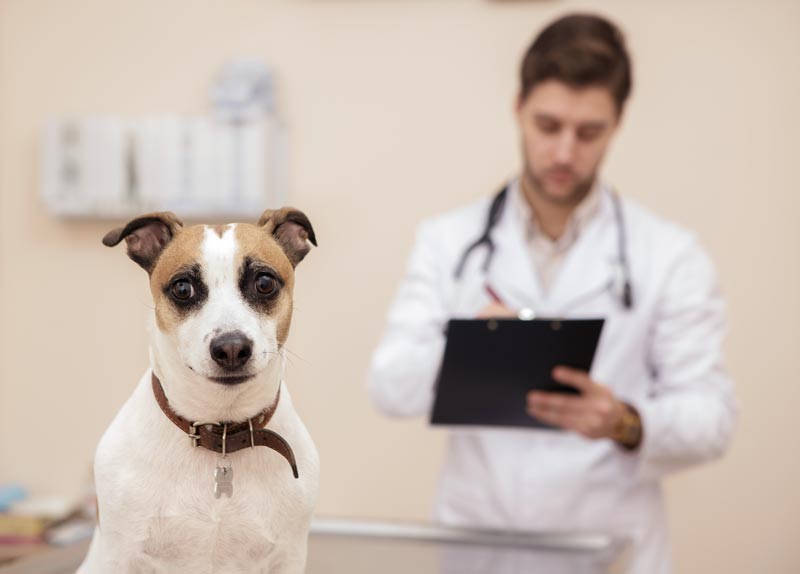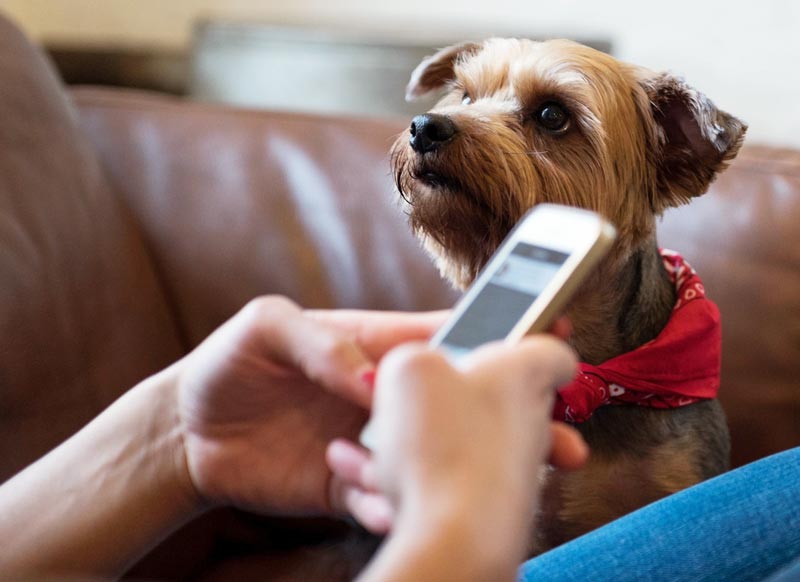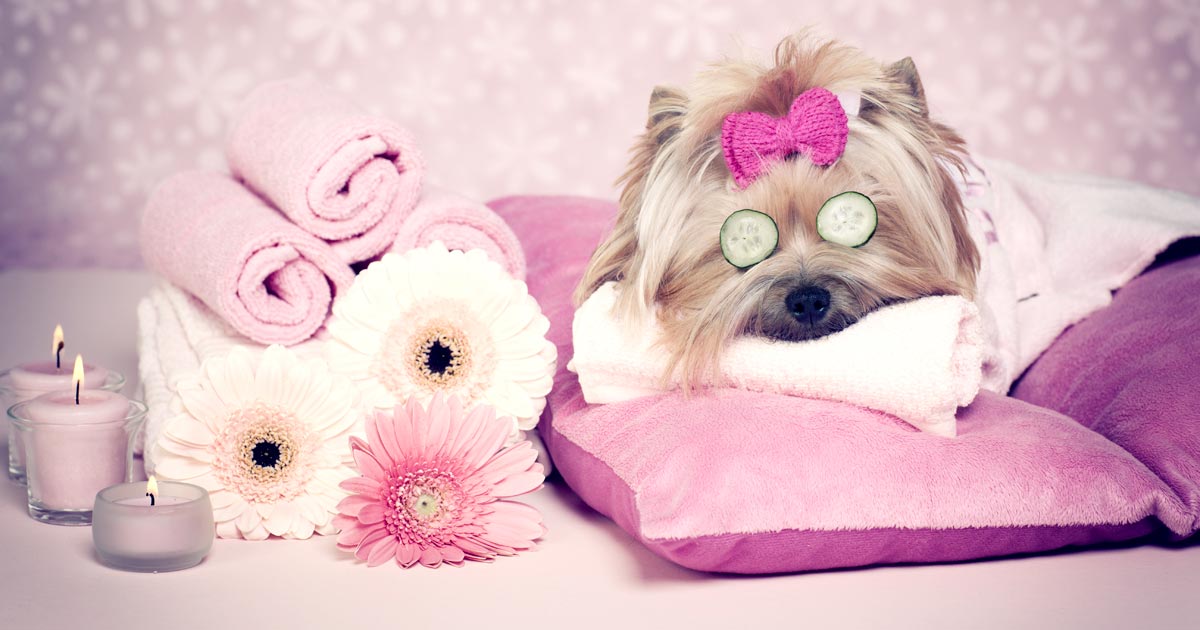I spent much of my childhood badgering my parents to get us a family pet.
I loved animals, but – aside from the odd hamster, stick insect or bucket of frogspawn brought home from my mum’s classroom (she was a teacher) to spend the summer holidays with us – we didn’t get a “proper” (in my youthful opinion) pet until I was 12 years old.
We got a red cocker spaniel I demanded must be called Silky, for reasons that probably seemed very clear to me at the time.
Having wanted a pet for so long, I thought everyone would have the same attitude to pets as I did – that they were wonderful, rare, precious and full members of the family.
It took a conversation with another boy at school to make me realise perhaps not everyone treated pets the way I thought they should. I excitedly told him we had just got a new pet, and I asked him if he had any.
He shrugged nonchalantly, replying: “Well, we used to have a cat, but the dog ate it.”
Lap of luxury?
At one point in my long and rambling previous blog, I talked about inequality, wondering why we treated some animals so differently.
In the midst of my waffle, I suggested to be a pet was to win the lottery of the animal kind, at least when it comes to being used by humans – free food, board, your health looked after, your whims catered for, and generally spending your life relaxing and having a good time of it.
That childhood conversation suggested it wasn’t quite that simple, and 20 years of general practice confirmed it.
Being a pet can, indeed, be a life of leisure, but I encountered plenty of situations where it was apparent for an animal to be completely reliant for its welfare and basic needs on a particular human being was not necessarily a good thing.
Down the rabbit hole(s)

I’d like to talk about some of the ethical implications of owning pets. Some rabbit holes I’d like to avoid – even though I think they’d be interesting to consider.
The first is the idea humans can “own” another creature, having total control over its life and death. It would be an interesting ethical debate as to whether this is justifiable, but it wouldn’t have any meaningful practical implications, as the practice isn’t going to end any time soon.
A related subject I’m also going to cheerfully avoid is whether it’s okay to perform procedures on our pets in ways that don’t benefit them directly (or at least, not completely), but that help other pets or help us to keep them as pets.
I’m talking about procedures such as organ donation (fairly clear cut in many people’s eyes), blood donation (less clear cut) and neutering (although health benefits to this exist, most pets would rather not have their genitals removed if given the choice, and I suspect many readers would feel the same way; the health benefits of neutering are not the only reason we do it… but I digress).
Instead, what I’d like to briefly discuss is the lottery of being a pet – of not being able to choose your human carer.
Some people shouldn’t have pets
I have, as painfully pointed out, always loved pets, but am sadly aware since the arrival of small people in our house, the pets have not had the care, attention or even love they used to get (to clarify, we have children – we’ve not been invaded by hobbits).
As a vet, I’ve seen a lot of animals looked after better than mine, but I’ve also seen many animals looked after much worse, to the point where “looked after” starts to sound somewhat ironic. I’m sure you’ve all seen it too – some “pets” live in conditions of squalor and misery that make the worst conditions I touched on in my first of these blogs (about farm animals) appear luxurious.
It’s a sad fact some humans are simply not in a position – either mentally or physically – to look after the basic welfare needs of another creature, let alone cater to their every whim.
Even the best of us have days, weeks or even months when we can hardly look after ourselves, let alone something else. The worst of us… well, we can be pretty good at causing suffering when we apply ourselves to the task.
Suffering in silence

It’s not just as simple as wilful cruelty, of course – although that is a part of it; a part that occurs behind closed doors, out of sight and generally a long way from veterinary surgeries – but I have seen great suffering caused by people who have hoarded pets beyond the point where they can keep them healthy, clean or fed.
Animals don’t get to choose what happens when families break up or their active owner suddenly becomes physically infirm or overcome by mental illness, but they suffer for it just the same.
Nor is it simply a case of money. I have seen plenty of suffering caused by well-off owners who cared too little, or too much, for their pets, or took on more than they could handle. That said, I wonder how many animals live in households where going to the vet isn’t even considered a possibility, and where pets are effectively disposable items?
It’s a lot cheaper to make a rabbit than it is to fix one. I don’t know how many animals live in worlds like this, but the direction veterinary fees are moving in seems unlikely to reduce it.
Giving pets a voice
What’s my point? For the purpose of this little series of posts, it’s really that, although we’re familiar with the idea to the point of banality, keeping pets is another form of exploitation of animals by humanity. In many cases, it’s benign exploitation, but it’s exploitation nevertheless.
The issue of consent is difficult with animals – they don’t have the mental ability to even understand the idea – but I think it would be useful to remember pets didn’t ask to be pets, and they can’t choose their owners.
I’m preaching to the converted here, of course, but a huge aspect – I think the most important aspect – of being a vet or VN is to be an advocate for those pets; to put ourselves in their position and to speak for those that can’t speak for themselves.

Leave a Reply